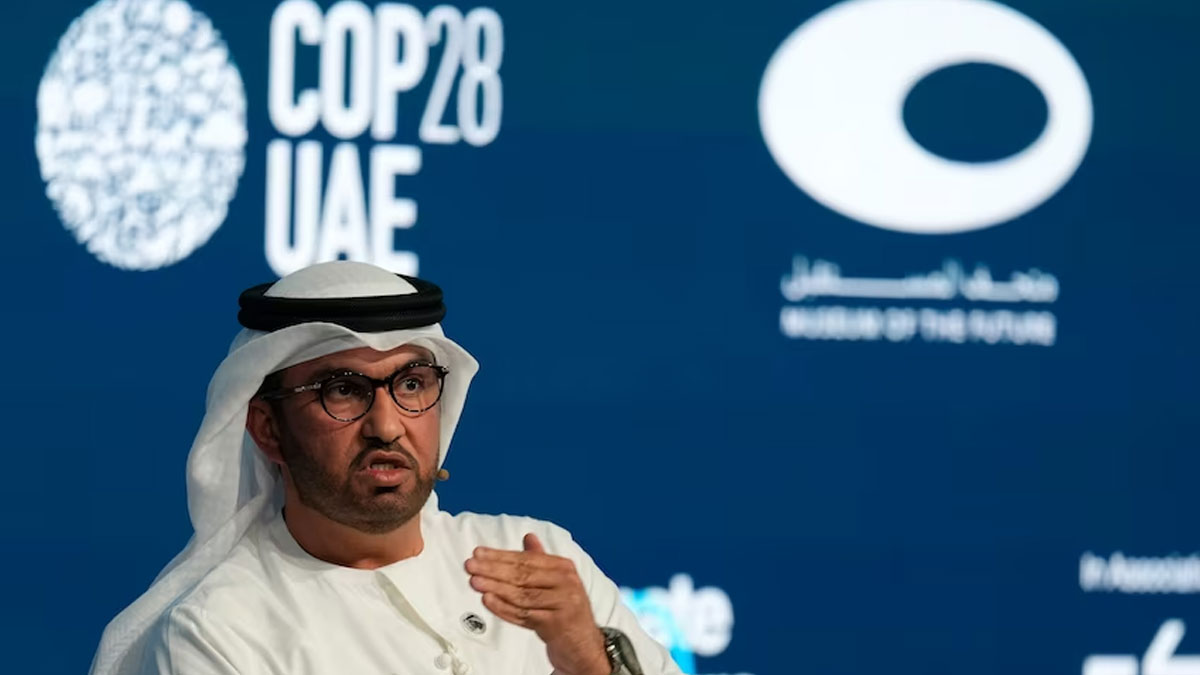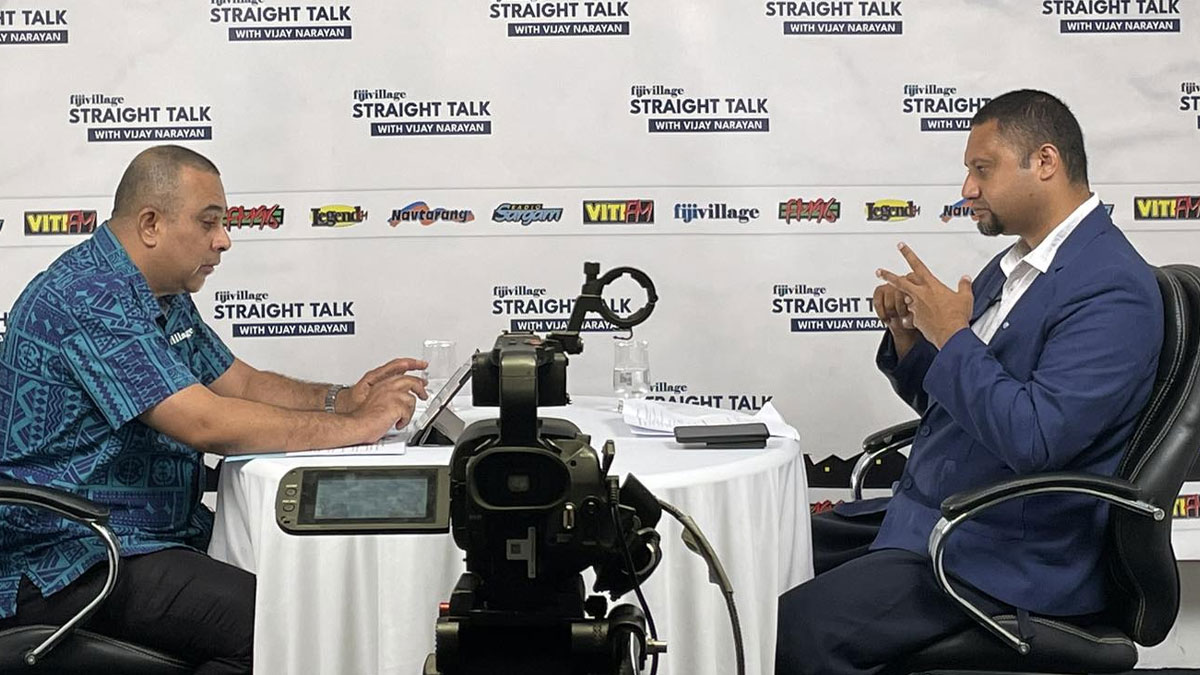
The man in charge of this year's global climate negotiations planned to use his position to push fossil fuel deals with foreign government officials, according to leaked documents.
Sultan Al Jaber, who is running the United Nations climate summit, COP28, which starts in the United Arab Emirates (UAE) this week, planned to use pre-COP diplomatic meetings including with Germany, the US, China and Italy to discuss oil and gas trade.
The revelations have been labelled a serious breach of the standards of conduct expected of a COP president by experts in climate diplomacy, with fears it could undermine the talks before they even begin.
The appointment of Dr Al Jaber as the COP president was controversial from the start. It was labelled "dangerous" by one former UN climate boss, but a "terrific choice" by John Kerry, the US special climate envoy.
Dr Al Jaber is not only the UAE’s special climate envoy, but also the CEO of the world’s sixth-biggest oil company — the state-owned Abu Dhabi National Oil Company (ADNOC).
This dual role had been called a "breathtaking conflict of interest" by some campaigners, while others saw hope in driving change into the heart of the oil world.
Some of those formerly optimistic about his role have lost faith in Dr Al Jaber, while those sceptical from the start say their concerns have been vindicated.
Secret plans
The leaked documents obtained by the Centre for Climate Reporting (CCR) and BBC and seen by the ABC, include more than 150 pages of briefings prepared by the COP28 team for meetings held by Dr Al Jaber.
While some hoped having an oil boss at the heart of climate negotiations could kick start agreements to phase-out fossil fuels, instead the leaked briefings show secret plans to discuss how ADNOC can increase the billions of dollars of trade it does with other countries during pre-COP meetings.
A COP28 team spokesperson, the group put together by the UAE to help organise the conference, said in a statement to the ABC that the documents are "inaccurate and were not used in COP28 meetings".
They did not deny that ADNOC was represented in meetings.
The team also told the BBC that 'Dr Sultan (Al Jaber) holds a number of positions alongside his role as COP28 President-Designate.
That is public knowledge.
Private meetings are private, and we do not comment on them'.
The BBC and Centre for Climate reporting said the documents were corroborated by two whistleblowers, supported by additional leaked internal emails.
The UN body in charge of the negotiations, the United Nations Framework Convention on Climate Change (UNFCCC), says the "cardinal principle" for COP presidents and their teams is "the obligation of impartiality".
It told the BBC that COP presidents are "expected to act without bias, prejudice, favouritism, caprice, self-interest, preference or deference, strictly based on sound, independent and fair judgement".
The talks Dr Al Jaber is chairing in Dubai are meant to implement the Paris Agreement, which binds countries to try to stop warming at 1.5C.
To do that, according to the International Energy Agency, all development of new oil and gas fields needed to stop in 2021
But in 2022, under Dr Al Jaber’s leadership, ADNOC announced plans to invest $US150 billion to not just grow oil and gas development, but to “accelerate” that growth.
Goodwill eroded
International director at the Smart Energy Council, Richie Merzian, was previously among those with some optimism about Dr Al Jaber’s role. But he said any goodwill towards what was already a controversial appointment had now been eroded.
"It just demeans that entire system and it's really hard to see how the Emirates can bring everyone together, push them to go further, when they privately are muddying the waters," he said.
"To see the UAE step up, take on this role, and try and take it forward was a good thing. But now, it's really just put everything into question.
"He's breached the responsibilities, the role, which is to rise above self-interest, and to really act in the global interest."
Mr Merzian, a former Australian government representative at UN climate conferences, knows just what it’s like behind the scenes in negotiations, but says he has never seen a situation this dire.
But there is precedent for the COP presidency changing hands, as happened in Copenhagen in 2009, when the Danish prime minister took over halfway through the two-week conference.
While it is not unusual for bilateral talks between climate and energy ministers to discuss energy deals, Mr Merzian said it was a different story for the COP president.
"You are taking on a responsibility that is above any self interest and that is to progress climate action, to implement the Paris Agreement to make sure that targets align with 1.5 degrees," he said
"Even the interests around progressing their own renewable energy projects, through their own renewable energy companies shouldn't really be on the agenda."
'Raging conflict of interest'
Director of Climate and Energy at the Australia Institute, Polly Hemming was one of those sceptical of Al Jaber’s appointment from the start.
"I think it's a raging conflict of interest," she said.
"It's also really dangerous.
"For the COP president, before the event even happens to be co-opting, undermining and hijacking this process that is so important to so many people is contemptuous."
Ms Hemming said it was in Dr Al Jaber and the UAE’s interest to "ultimately obstruct and undermine climate action".
"It's a little bit like a dystopian satire, you've got a climate conference being hosted by a petro-state with plans to continue producing and exporting oil," she said.
"It needs to protect its resources industry, it relies so heavily on its fossil fuel exports for revenue."
Ms Hemming said that while this year's negotiations were focused on increasing renewable energy, it appeared to be in addition to fossil fuels, rather than as a replacement.
"That language around nature-based solutions, renewables, carbon capture and storage technology, in general, is all very vague and ambiguous and it can really mean anything," she said.
"It all sounds great, it sounds really exciting, but it's often hard to know exactly what it means. Often it's a front for business as usual."
While the scrutiny is currently on the UAE, Ms Hemming said similar criticisms would arise should Australia’s bid to host a COP come to fruition.
"Australia actually exports more fossil fuels than the UAE. It's using the same language around technology and renewables," she said.
"I think there's been so much more scepticism and cynicism about Al Jaber versus the Australian government when actually there's not a lot of difference in both countries' approach and the emissions from both countries.”
Federal Climate Change Minister Chris Bowen has been contacted for comment.
Story by Jess Davis and Michael Slezak
Original story link https://www.abc.net.au/news/2023-11-29/cop28-president-planned-to-use-position-to-make-oil-deals/103160038
Stay tuned for the latest news on our radio stations


